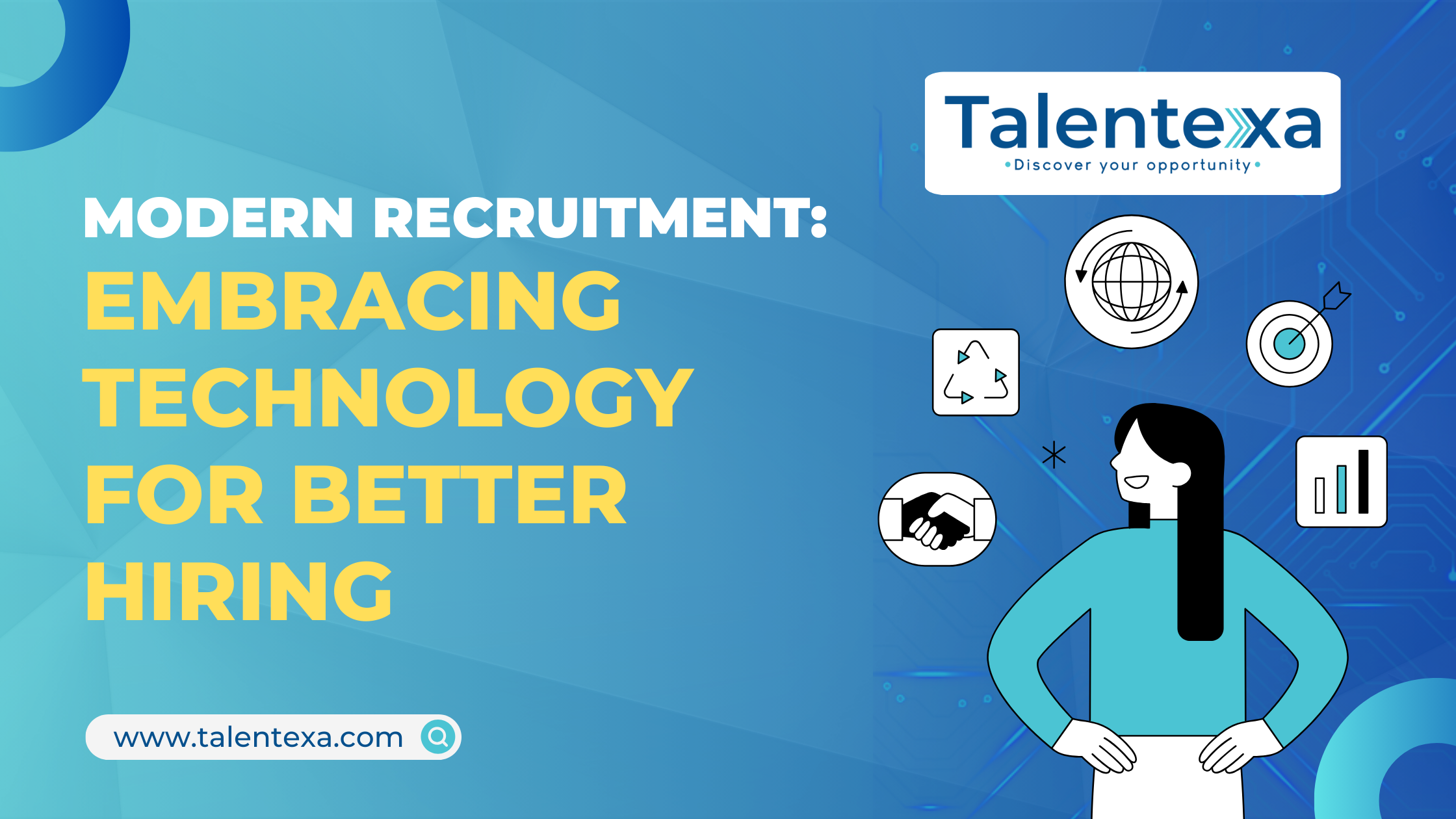In today’s fast-paced digital world, technology is transforming every aspect of our lives, including how we hire and retain talent. The recruitment landscape has evolved significantly, shifting from traditional methods to a technology-driven approach. This transformation is reshaping how companies find, assess, and hire candidates. Here’s how technology is revolutionizing the recruitment industry.
1. Applicant Tracking Systems (ATS)
ATS has become a cornerstone of modern recruitment. These systems automate the process of sorting and managing resumes, enabling recruiters to handle large volumes of applications efficiently.
Key benefits:
- Streamlined workflow: ATS software automates repetitive tasks, freeing up recruiters time to focus on more strategic activities.
- Enhanced candidate experience: Candidates receive timely updates about their application status, which improves their overall experience.
- Data-driven insights: ATS provides valuable analytics on recruitment metrics, helping companies to make informed decisions.
2. Artificial Intelligence (AI) & Machine Learning
AI & machine learning are transforming how recruiters source and screen candidates. These technologies analyze vast amounts of data to identify the best matches for job openings.
Key benefits:
- Bias reduction: AI algorithms can help eliminate unconscious bias in the recruitment process, promoting diversity and inclusion.
- Predictive analytics: AI can predict candidate success based on historical data, improving the quality of hires.
- Personalized experience: Machine learning can tailor job recommendations to candidates based on their skills and preferences.
3. Video Interviewing Platforms
Video interviewing has become increasingly popular, especially with the rise of remote work. These platforms offer a convenient and efficient way to conduct interviews without geographical constraints.
Key benefits:
- Time savings: Scheduling and conducting interviews online saves time for both recruiters and candidates.
- Wider talent Pool: Employers can reach a global talent pool, ensuring they find the best candidates regardless of location.
- Consistent evaluation: Recorded interviews allow multiple stakeholders to review and assess candidates consistently.
4. Social Media Recruiting
Social media platforms like LinkedIn, Facebook, and Twitter have become powerful tools for sourcing and engaging with potential candidates.
Key benefits:
- Wider reach: Social media expands the reach of job postings to a broader audience.
- Employer branding: Companies can showcase their culture and values, attracting candidates who align with their mission.
- Active and passive candidates: Social media helps recruiters engage with both active job seekers and passive candidates who might not be actively looking but are open to opportunities.
5. Recruitment Marketing Tools
Recruitment marketing tools help companies attract, engage, and nurture talent through strategic marketing practices. These tools enable recruiters to create targeted campaigns to attract the right candidates.
Key benefits:
- Targeted campaigns: Recruiters can create personalized campaigns that resonate with specific candidate segments.
- Engagement analytics: These tools provide insights into candidate engagement, helping recruiters refine their strategies.
- Brand awareness: Effective recruitment marketing enhances employer branding and attracts top talent.
6. Employee Onboarding Software
Once the right candidate is hired, the next crucial step is onboarding. Employee onboarding software simplifies and streamlines this process, ensuring a smooth transition for new hires.
Key benefits:
- Efficient onboarding: Automated onboarding processes save time and ensure consistency.
- Better engagement: New hires feel welcomed and supported, which boosts engagement and retention.
- Compliance: These tools help ensure that all necessary paperwork and compliance requirements are met.
Future of Recruitment
- VR & AR technologies are emerging as innovative tools in recruitment. VR can be used for immersive job simulations, allowing candidates to experience a day in the life of a role. AR can enhance onboarding processes, providing interactive and engaging training experiences.
- Predictive analytics is set to play a significant role in recruitment. By analyzing historical data, predictive analytics can forecast future hiring needs, identify potential candidates, and predict candidate success. This proactive approach will enable companies to make more strategic hiring decisions.
- Blockchain technology has the potential to revolutionize recruitment by ensuring the authenticity of candidate credentials and streamlining background checks. Blockchain can provide a secure and transparent way to verify education, work experience, and certifications, reducing the risk of fraud.
Conclusion:
Technology has undeniably transformed the recruitment landscape, offering numerous benefits such as increased efficiency, improved candidate experience, and enhanced data-driven decisions. However, it is essential to balance technological advancements with the human touch to ensure a holistic and inclusive recruitment process. As technology continues to evolve, recruiters must stay adaptable and embrace new tools to attract and retain top talent in an ever-changing job market.
At Talentexa, we understand the power of these technological advancements. By embracing these innovations, we help our clients stay ahead in the competitive talent market, ensuring they attract and retain the best talent.
“Are you looking to find the right talent for your organization or looking for your next career opportunity, we are here for you.”
Hire Talent: https://talentexa.com/hire-candidates/
Apply for Job: https://talentexa.com/job-seeker-apply/
OR
Connect with us directly:
Email: info@talentexa.com
Website: www.talentexa.com
Tel: +91 8147 047 420


